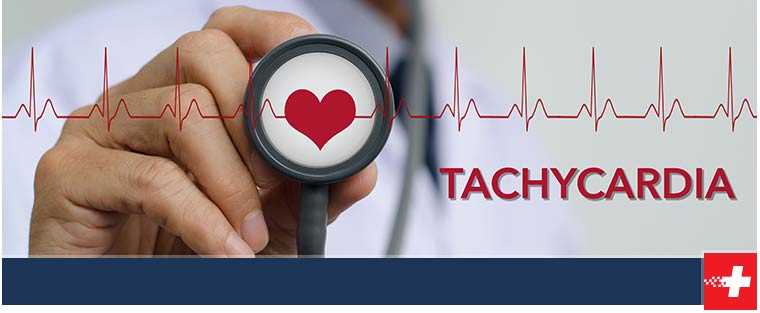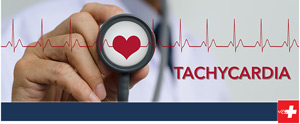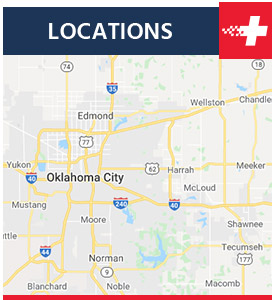How Often Should I Get an Electrocardiogram (ECG)?
An electrocardiogram (ECG or EKG) is a test that measures an electrical impulse from the heart to diagnose various cardiac problems. At Immediate Care of Oklahoma, our healthcare professionals provide ECG tests to see how effectively your heart is functioning by measuring how long electrical impulses move from one chamber of the heart to the other chamber and analyzing if the heartbeat is fast, sluggish, or irregular. It is also used to analyze the damaged sections of the heart. For more information, contact us or schedule an appointment online. We provide convenient locations in Oklahoma City, OK.


Table of Contents:
What does an ECG test for?
Why might i need an electrocardiogram?
What is an ECG vs. EKG?
How long does ECG last?
If you’re experiencing cardiac issues or you have a history of heart problems that run in your family, your primary care physician may require you to get an electrocardiogram (EKG). An EKG provides information to your doctor about how your heart is operating, how effectively it’s beating, and its blood flow levels. It can also be used to check for a heart attack and other heart anomalies.
This type of diagnostic testing is important to ensure that your heart working properly, ensuring that your health is safeguarded as you move into the future. Through this procedure, your physician will gain a more comprehensive insight into your heart’s electrical activity and if any potential issues need to be addressed.
If you need a professional and timely EKG, the medical team at Immediate Care of Oklahoma would be happy to help. We offer on-site EKGs, with and without appointments, so that you can get the testing you need when and where you need it. Contact us today for more information about our EKG services or book in online to schedule an appointment at your earliest convenience.
An electrocardiogram (EKG) is a quick, painless, and non-invasive type of medical test that helps your doctor to diagnose and treat common heart problems. An EKG measures your heart’s electrical activity, which gives your primary care physician more insight into how well your heart is beating and the rate of blood flow. It can also be used to determine if the heart muscle is working as well as it should be, or if pre-existing heart conditions are getting worse or better. This allows your doctor to (1) make a diagnosis or (2) make changes to your existing treatment plan.
In most cases, you will be prescribed an EKG if you’re experiencing certain symptoms. This includes chest pain, shortness of breath, heart palpitations, rapid or weak pulse, dizziness, confusion, weakness, and/or fatigue.
Most commonly, an EKG is used to detect or diagnose:
– Irregular heartbeat patterns (aka arrhythmias).
– Arteries that are blocked or constricted.
– The cause of chest pain.
– A previous heart attack.
– If certain cardiac equipment (for example, a pacemaker) is functioning properly.
An electrocardiogram (EKG) provides your primary care physician with vital insights into the health and function of your heart. This allows them to formulate a more accurate diagnosis and a more comprehensive treatment plan.
If you’re suspected of having any of the following issues, your doctor will likely send you in for an EKG:
– An abnormal heartbeat (arrhythmia).
– Abnormal blood and oxygen levels.
– An enlarged heart or other defects.
– Heart aneurysms.
– Past heart attacks.
– Coronary artery disease.
– Issues with cardiac equipment, such as a pacemaker.
You may have seen the abbreviations EKG and ECG used in medical settings before and are wondering what the difference is. However, there is no difference.
Both terms are used as abbreviations for an electrocardiogram. No matter what lettering is on the front of your requisition form, you’ll be getting the same test and the same level of care.
EKGs are one of the most time-efficient tests to perform, as they typically only take 10 minutes to set up and only a few seconds to perform. On average, total preparation and recording take 10-15 minutes – meaning that you should be in and out of your appointment quickly!
However, it’s important to be aware that it may take between 1-2 days to receive the results from your EKG. This takes more time as your results must be interpreted by a heart specialist before they are conveyed to your primary doctor. Once they have received your results, they will schedule you for a follow-up appointment to go over them in more detail.
If your doctor has requested that you go in for an EKG, connect with us at Immediate Care of Oklahoma. Our professional and experienced diagnostic team will perform the testing you need so that you can continue moving forward in your healthcare journey. For more information, contact us or schedule an appointment online. We have convenient locations near you in Oklahoma City, OK. We serve patients from West Moore OK, Norman (HealthPlex) OK, Norman (24th) OK, Edmond OK, Yukon OK, I-240 & Sooner RD OK, Tecumseh OK, Bethany OK, and surrounding areas.


Additional Services You May Need
▸ Urgent Care Services
▸ Illness + Injuries
▸ On Site Lab + X-Ray
▸ Helpful Health
▸ Motor Vehicle Accidents
▸ Drug Testing
▸ MRO
▸ UTI Treatment
▸ Employment Physicals
▸ Workers Comp
▸ Strep Throat Treatment
▸ Pregnancy Testing
▸ Blood Pressure Testing
▸ Urinalysis
▸ Mononucleosis Treatment
▸ Suture Removal
▸ Respiratory Syncytial Virus
▸ OccMed








